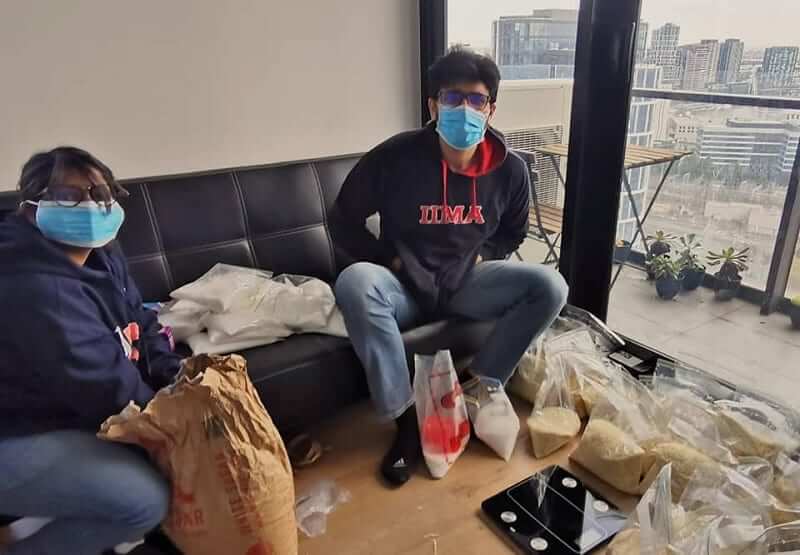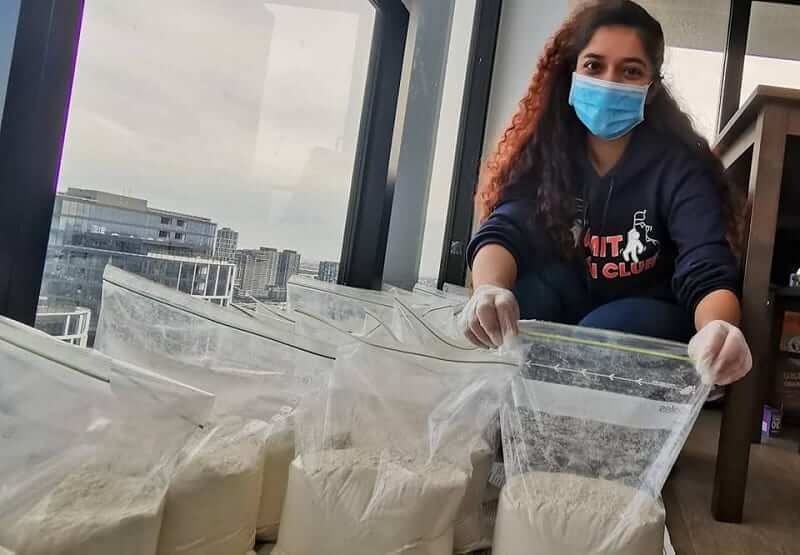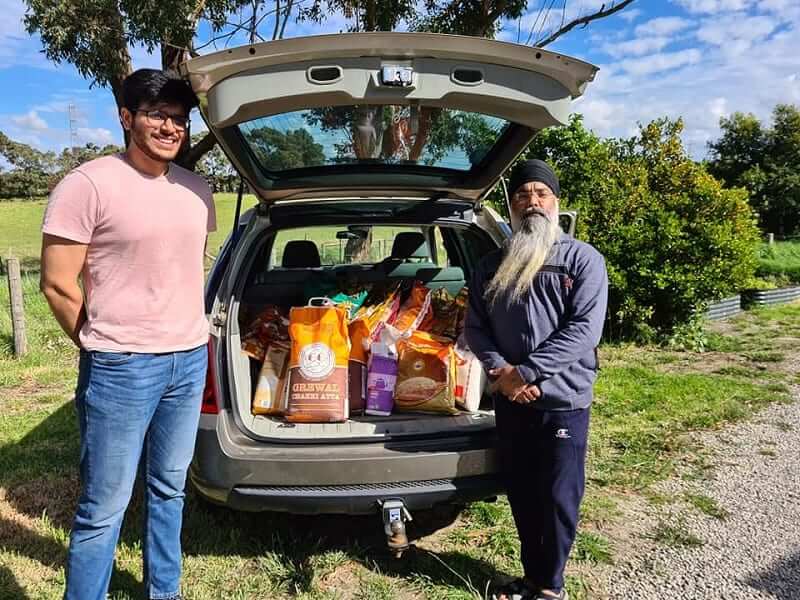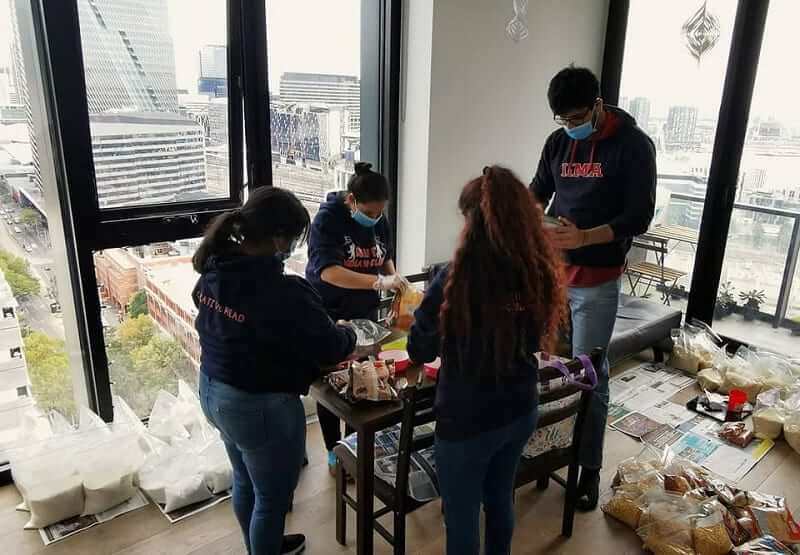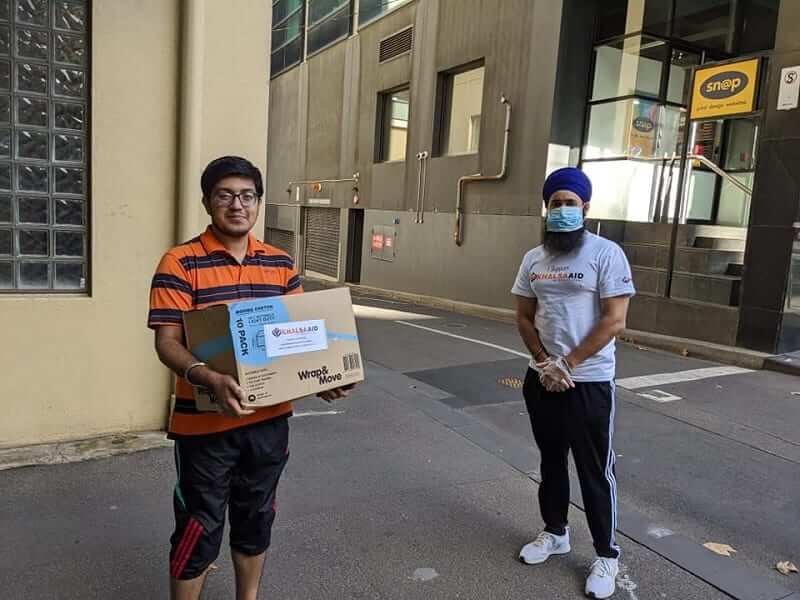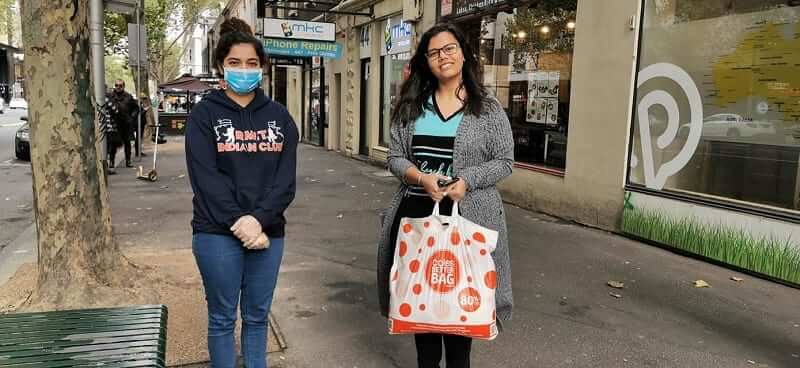At a time when Victoria reels from the impact of the coronavirus, students from RMIT University’s Indian Club decided to make a difference in their own way.
Looking out for their fellow international students, especially those who did not get a chance to experience Melbourne before it went into harsh lockdown, they delivered food packages through bad weather and restrictions.
“I really wanted to do some good instead of just sitting at home during the lockdown,” explained Karan Mehta, an active member of the RMIT Indian Club. Together with his friend and the club’s cultural coordinator Chetana Singh, they decided to make a difference.
AT A GLANCE
- The club collaborated with two organisations to help more than 200 students
- They provided grocery kits with essentials like rice, oil, bread, lentils, and milk
- For many thankful students, the groceries lasted almost a month
They first reached out to Khalsa Aid Australia, a community group built on the strong Sikh principle of “serving the whole human race as one.” In the spirit of seva (selfless service) and langar (free community meals), the organisation provided the RMIT Indian Club with grocery kits. It contained essentials like flour, rice, sugar, oil, bread, milk, lentils, salt, and basic spices.
Chetana had initially contacted them herself after losing her job during the pandemic, and was “amazed and overwhelmed” to receive a big, heavy box of groceries from the organisation. This feeling motivated her to collaborate with her club and help other students.
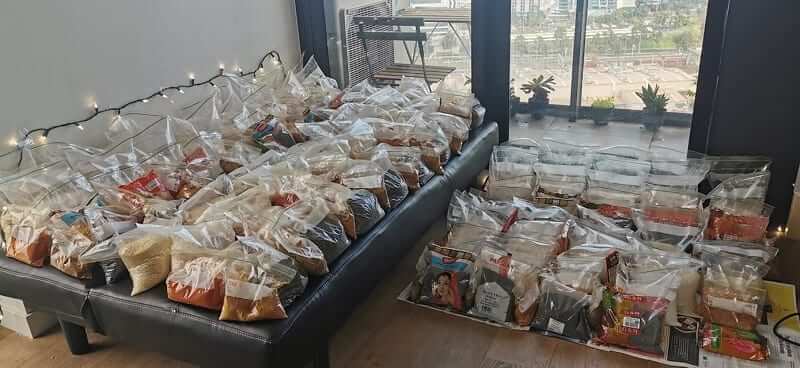
“It was the great contribution by Chetana Singh to use the information as an opportunity to provide help to the students,” said Viditi Kodwani, president of the RMIT Indian Club.
The club sent out a Google sheet for students who require free groceries and got more than 200 responses.
“We got responses from students in RMIT University, and also their friends in other Melbourne universities,” shared Karan.
The club provided a list of addresses to Khalsa Aid Australia, and Chetana assisted the Khalsa team in delivering the groceries. They ensured that vehicles were thoroughly sanitised and volunteers used protective equipment. When there was a requirement for more grocery kits, they reached out to community organisation Gurudwara Siri Guru Nanak Darbar in Officer, who were happy to help.
The grocery kits were packed in zip-lock bags by the club’s members, who took careful precautions to wear masks and gloves during the process.
“Acquiring the groceries from the organisations was easy. Packaging them and sanitising them thoroughly was the tough part,” Karan told Indian Link. This time, they hired a van (paid from the club’s account) and he went along for the deliveries.
Was he nervous about driving through Melbourne alongside rising cases and empty streets?
“I wasn’t worried about infections because we took all the necessary precautions,” he stated. “More than anything, I felt immense satisfaction while we were on our rounds because we were helping students and getting supplies into the right hands.”
Deliveries spanned five days, starting from Southbank, Melbourne CBD and working outwards to new suburbs every day. Grocery kits were allocated on a priority basis, starting with students who had lost their jobs and were struggling to make ends meet.
Some students reached out to the RMIT Indian Club afterwards, thanking them for the selfless help.
“Some people told us that our grocery kits lasted them a whole month. They were very thankful that they were able to save that kind of money,” Karan said. “It feels good that we were able to do that.”
The entire process of receiving the groceries, packaging, and delivering them spanned three weeks before Melbourne’s second lockdown was implemented. Many have now come to terms with lockdown life as the “new normal.”
“Students in Melbourne have accepted the restrictions and lockdown as the new normal. Now they’re just trying to find social interaction online, by attending virtual events and making friends in the ways they can,” admitted Karan.
READ ALSO: COVID-19: How Melbourne’s Indian community is reaching out to the needy




